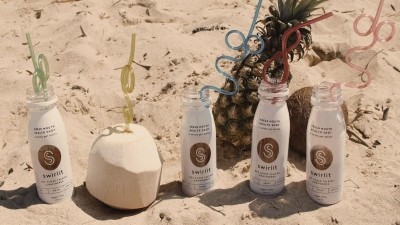Sweet success: Regulatory approval of DuPont's xylitol ingredient to boost further innovation

The ingredient, which comes under the company's Danisco range, most recently received reapproval from South Korea's Ministry of Food and Drug Safety (MFDS) for the health claim that it lowers the risk of dental caries in consumers aged three to 80.
As per South Korean regulation, functional ingredients such as XIVIA are subject to mandatory re-evaluation a decade after prior health claim approvals.
The MFDS reviewed 146 research reports, including 94 clinical trials, and was satisfied that XIVIA did indeed help to reduce the risk of dental caries at a daily dose of 5g to 10g — in line with international dental association standards.
This reapproval will allow manufacturers to continue using XIVIA to develop sugar-free products in the dairy, beverage, confectionery, bakery, and dietary supplement spaces.
Ingredient information
DuPont's XIVIA Xylitol is a naturally occurring wood-based sweetener that has half the calories of regular sugar, and is known for its dental health benefits.
DuPont's South Korea sales leader Jin Choi told NutraIngredients-Asia: "There are three main factors that impact how xylitol enhances dental health: sugar substitution, increased salivary flow and xylitol's specific effects against Streptococcus mutans (a bacterium commonly found in the human oral cavity and a significant contributor to tooth decay)."
Xylitol;s non-cariogenic nature means pathogenic oral bacteria cannot use it to locally produce acids — substituting sugar with xylitol maintains the oral pH level and along with it, tooth mineralisation.
The ingredient's stimulation of saliva secretion also improves tooth mineralisation, and alleviates dry mouth complications.
Furthermore, xylitol reduces the adhesion mutans Stretptococci (MS) to the tooth surface, and decreases their numbers in plaque and saliva, disrupting their energy production processes and eventually causing cell death.
Study support
Choi added that several studies had shown synergistic action between xylitol and fluoride, with both complementing each other in terms of improving oral health.
"There are studies in Japan that looked at xylitol consumption’s effect on mother-child transmission of Streptococcus mutans. These studies confirmed the effectiveness of maternal xylitol gum consumption on mother-child transmission of MS in a non-nordic population, whereas earlier studies were from Finland and Sweden.
“A sub-study in 2010 investigated MS levels 15 months post-intervention showed that xylitol had a carry-over effect in 10 of 43 participants in the post-intervention period."
He said that while most studies involving xylitol focused on its effect on dental caries, other studies in APAC had reported its impact on skin health, nasal irrigation and post-surgery recovery.
In Japan, for instance, a study assessing the effect of a cream containing farnesol and xylitol on atopic dry skin found that a week of using the cream improved the participants' ratio of Staphylococcus aureus, as well as their levels of skin hydration.
In China, a study demonstrated that a month of using a xylitol nasal rinse alleviated chronic rhinosinusitis better than a saline rinse did.
Yet another Chinese study showed that chewing gum containing xylitol could help reduce the time to first flatus and first defecation in rectal cancer patients undergoing elective open proctectomy.
Where else, what else?
Besides South Korea, XIVIA has three health claims approved in the EU, as well as in Vietnam and Indonesia for chewing gum — the former for a tooth decay prevention claim, and the latter for the claim of reducing the risk of dental caries.
In Japan, the ingredient carries an approved health claim for tooth remineralisation at a daily dose of 5g to 10g.
Choi said: "Given the increasing scrutiny on sugar, as well as the increasing incidence of diabetes globally, the confectionery industry finds itself in challenging times.
"XIVIA Xylitol is a versatile sweetener that can be used in a wide range of food applications, due to its ability to add freshness to fruit flavours and effectively mask any bitter taste."
He added that XIVIA was particularly suitable for the formulation of confectionery sweetened with dentally safe and beneficial sugar substitutes, thanks to its unique dental properties.
While confectionery goods and oral care products are among the most common uses for xylitol, table-top sweetener made with xylitol was recently launched in South Korea.
"At DuPont, we work closely with our customers to develop products that meet market and industry trends.
"We expect to see more innovative low- or no-sugar food products containing xylitol, such as mints, candies and chocolates, to address growing health trends.
"We also expect pharmaceutical and nutritional applications from XIVIA, such as tablets, parenteral nutrition, and injectable treatments."















